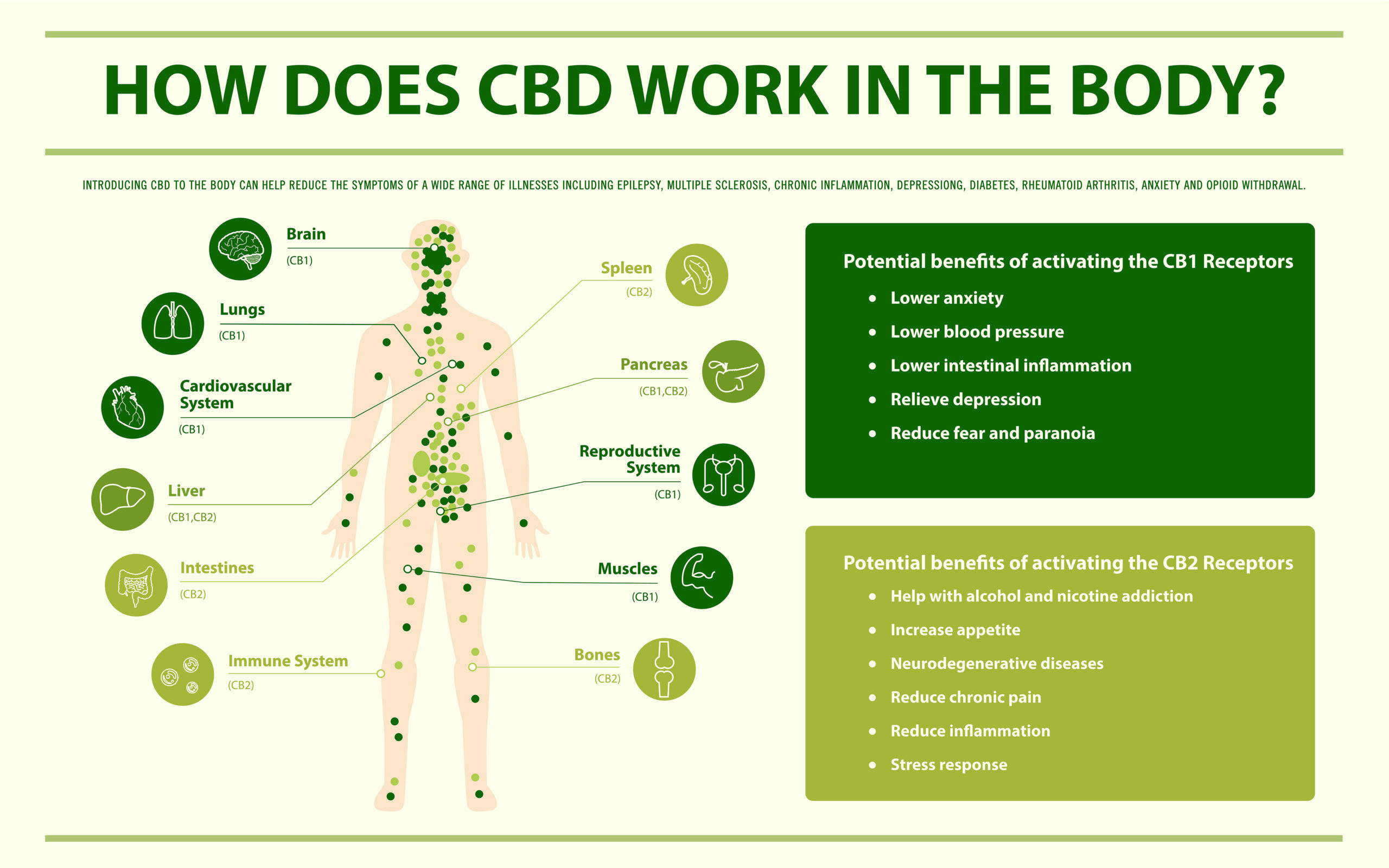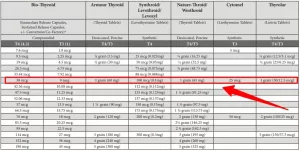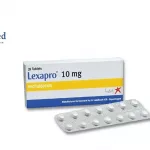Unlike tetrahydrocannabinol (THC), the principal psychoactive compound in cannabis, cannabidiol (CBD) does not produce a “high.” It may, however, offer a variety of health advantages.

May ease pain
CBD could be useful for diminishing certain types of pain tied to conditions like fibromyalgia. Nevertheless, additional study is necessary to fully determine its role in pain management.
Cannabis has a long history of use for pain relief, dating back to ancient Chinese medicine. Scientists suspect constituents such as CBD may underlie these therapeutic effects.
The endocannabinoid system helps regulate processes including pain perception. The body makes endocannabinoids — chemical messengers that bind to cannabinoid receptors.
Studies indicate that CBD might lower chronic pain by modulating endocannabinoid receptor signaling, reducing inflammation, and affecting neurotransmitter systems. Preclinical research also suggests potential benefits for rheumatic conditions such as fibromyalgia, according to available reviews.
»Our product picks:4 Best CBD Creams for Pain Relief: Tested and ReviewedCould lessen anxiety symptoms and support mental health
A review of CBD and mood disorders found that several studies point to CBD having qualities that could help reduce signs of depression, anxiety, and even psychosis.
A small trial also reported that CBD reduced PTSD-related symptoms, including distressing dreams, in adults.
Despite these promising findings, current evidence is not yet strong enough for clinicians to endorse CBD as an established treatment for these disorders.
»Our product picksBest CBD Oils for Anxiety in 2025May improve sleep onset and quality
CBD might promote better sleep — and only a modest amount may be needed. For instance, a 2024 study reported that 15 mg of CBD was as effective at enhancing sleep quality as 5 mg of melatonin. By comparison, many CBD servings range between 10 and 100 mg.
Anecdotally, Healthline CBD testers have noted that CBD helped them fall asleep quicker and remain asleep longer — often by calming racing thoughts or lessening pain that interferes with rest.
Some participants with chronic sleep disorders, such as sleep apnea, did not experience the same benefit.
A review of existing studies reached a similar conclusion: there isn’t yet enough evidence to claim that CBD treats sleep disorders like sleep apnea or insomnia, or PTSD-related nightmares, but preliminary results justify further research.
More recently, a meta-analysis focusing on CBD and insomnia observed that CBD may relieve insomnia symptoms, though additional investigation was recommended.
»Our product picks:7 CBD Products That Improved Our SleepMay support cardiovascular health
High blood pressure raises the risk for conditions including stroke, heart attack, and metabolic syndrome.
Some research suggests CBD might be beneficial for people with elevated blood pressure because it can affect heart muscle contractions and help dilate blood vessels.
For example, a study including 26 healthy men found that taking 600 mg of CBD for seven days produced notable short-term reductions in blood pressure compared with placebo, although the effect did not persist after seven days.
While these results are promising, more investigation is needed to determine CBD’s potential advantages for cardiovascular health.
May reduce certain cancer-related symptoms
CBD may help alleviate some cancer-related issues and side effects from cancer therapies, such as nausea, vomiting, and pain, according to existing reviews.
However, more rigorous research is required to establish whether CBD should be more routinely incorporated into cancer symptom control.
May have neuroprotective effects
CBD might offer benefits for people with neurological conditions. Evidence suggests that nabiximols (Sativex), a spray containing both CBD and THC, can reduce pain and muscle spasticity in individuals with multiple sclerosis (MS).
Research from 2017 showed that CBD helped cut seizure frequency in children with Dravet syndrome, although some adverse events occurred in those also taking other antiepileptic drugs.
The U.S. Food and Drug Administration (FDA) has approved one CBD medication, Epidiolex, for treating several seizure disorders and seizures related to tuberous sclerosis complex (TSC), a rare genetic illness that causes benign tumors to form in the brain and other tissues.
There is also limited evidence that CBD might improve symptoms in other neurological conditions, including:
- Parkinson’s disease
- Huntington’s disease
- autism spectrum disorder (ASD)
- motor disorders such as cerebral palsy
Other possible CBD advantages
Researchers have examined CBD for a number of health concerns beyond those discussed above.
While conclusive data are lacking, CBD is thought to potentially offer the following benefits:
- Substance-use support: Preclinical evidence suggests CBD may help ease anxiety and depressive symptoms in people dependent on certain drugs, including heroin.
- Possible life-extension in glioblastoma: Combining CBD and THC has been reported to extend survival in some people with aggressive glioblastoma, though research is limited.
What are CBD’s side effects?
CBD is generally regarded as safe, but some people may experience adverse effects such as diarrhea, appetite and weight changes, and fatigue.
Other reported issues — including abnormal liver function tests, drowsiness, sedation, and pneumonia — have appeared in childhood epilepsy studies.
These effects may arise from interactions between CBD and other medicines, such as clobazam, since CBD can interfere with various drugs. It’s advisable to consult a qualified healthcare provider about appropriate dosing and your risk for side effects.
Low-quality CBD products are widespread, so opt for products that undergo third-party testing for potency and purity.
Cornbread Hemp and Medterra are examples of brands whose CBD items are tested by independent laboratories and provide batch certificates on their websites.
Frequently asked questions about CBD benefits
Is CBD helpful for joint pain?
Preclinical studies suggest CBD may ease pain and inflammation associated with arthritis, but human trials are insufficient.
What happens if I use CBD daily?
Some people find CBD becomes more effective over time with continued use. However, tolerance can also develop, possibly requiring a higher dose to achieve the same effects.
How quickly does CBD take effect?
Many people notice effects within an hour when CBD is taken sublingually, but responses vary. Ingestible forms like gummies can take up to two hours, while topical CBD may work within minutes to an hour.
The bottom line
CBD may help relieve symptoms of anxiety, certain neurological disorders, heart-related issues, and some forms of pain, among other conditions.
Although research offers encouraging signals, more high-quality studies are needed before firm conclusions can be drawn. Investigation is ongoing.
Because CBD’s potential uses and safety profile are not fully established, discuss it with a qualified healthcare professional before starting use.
Is CBD legal? The 2018 Farm Bill removed hemp from the legal definition of marijuana under the Controlled Substances Act, making some hemp-derived CBD products with less than 0.3% THC legal federally. CBD products containing more than 0.3% THC remain classified as marijuana under federal law and are illegal at the federal level. Many states have their own rules, so check state laws, particularly when traveling. Also note that the FDA has not approved nonprescription CBD products and some items may be mislabeled.

























Leave a Reply
You must be logged in to post a comment.